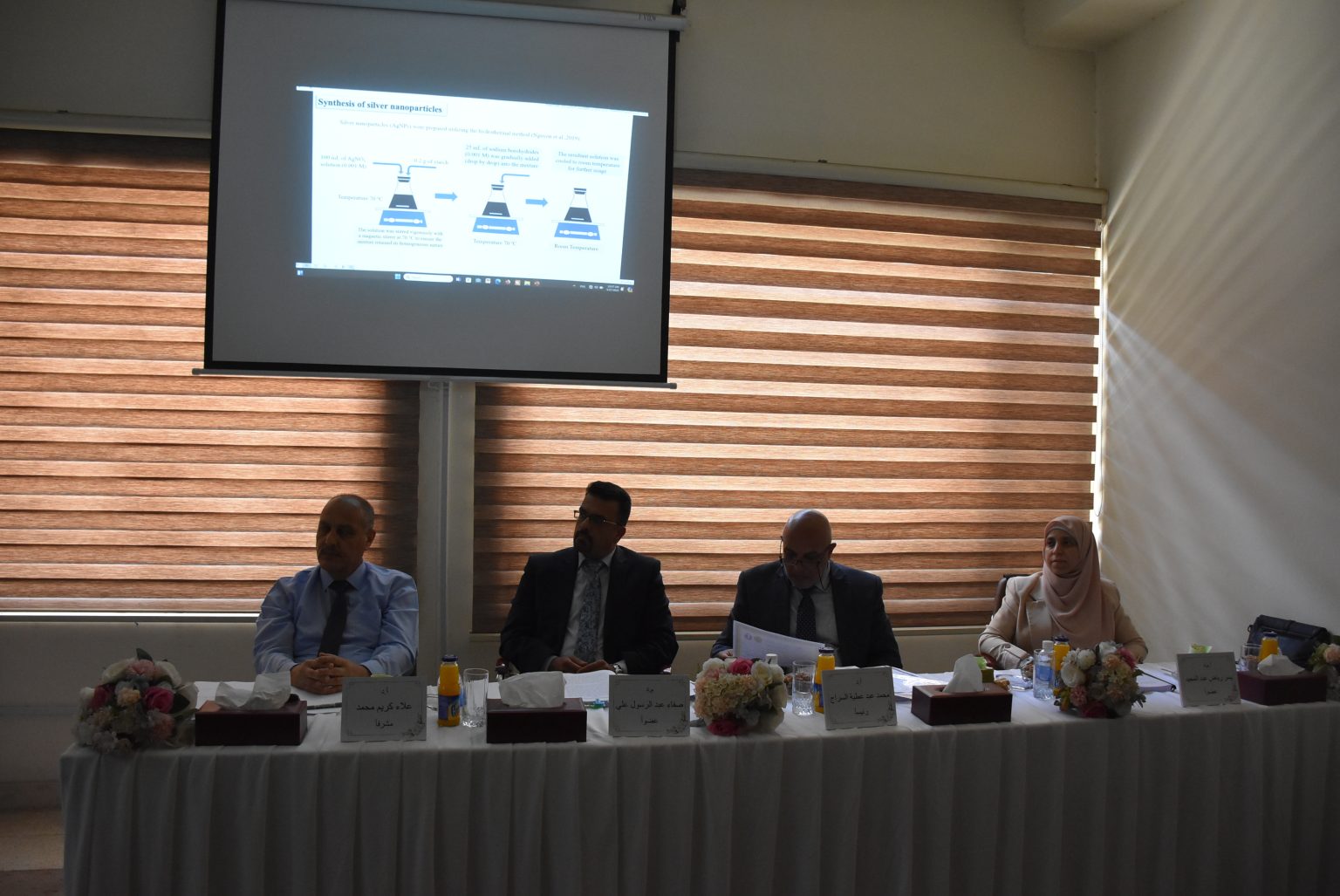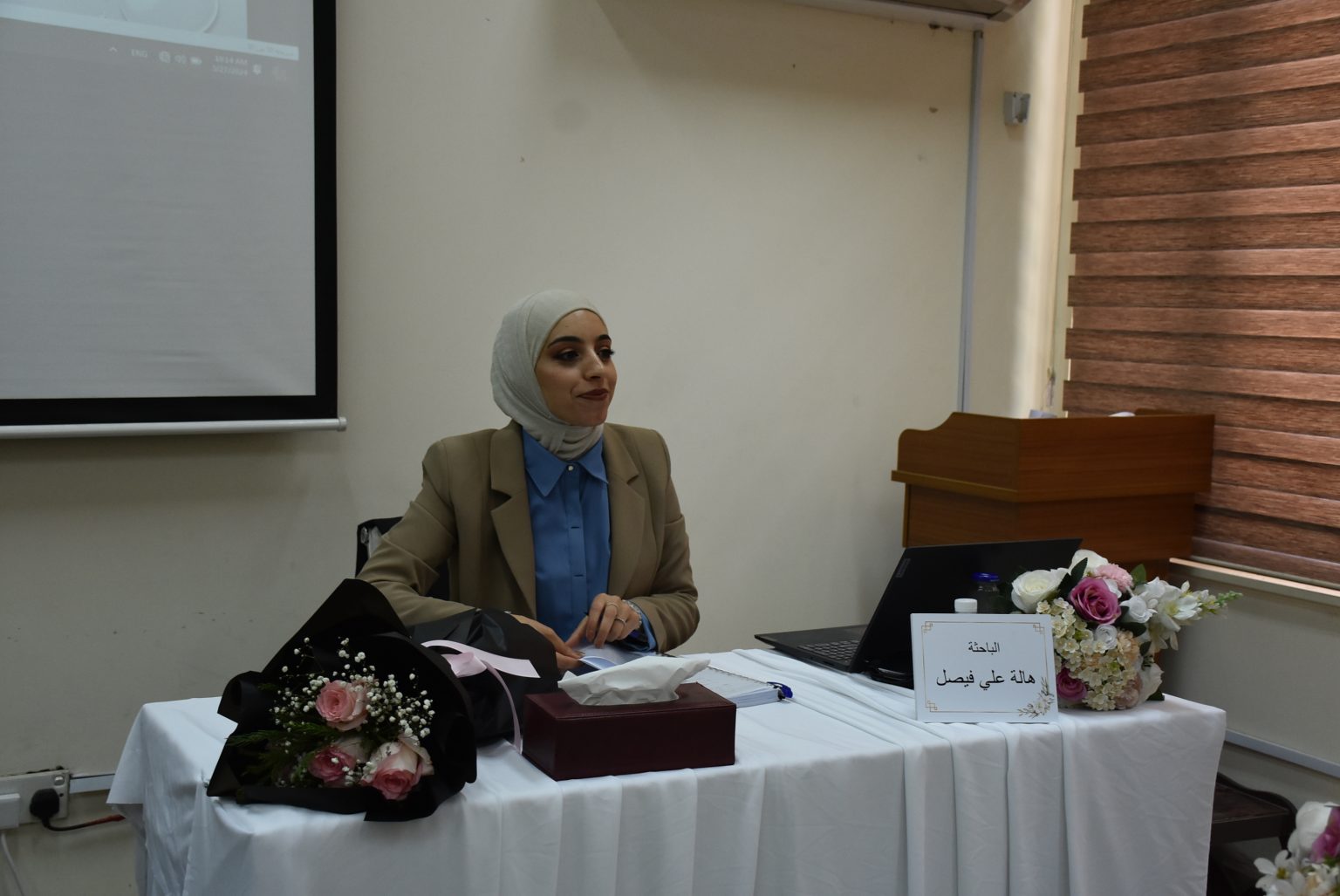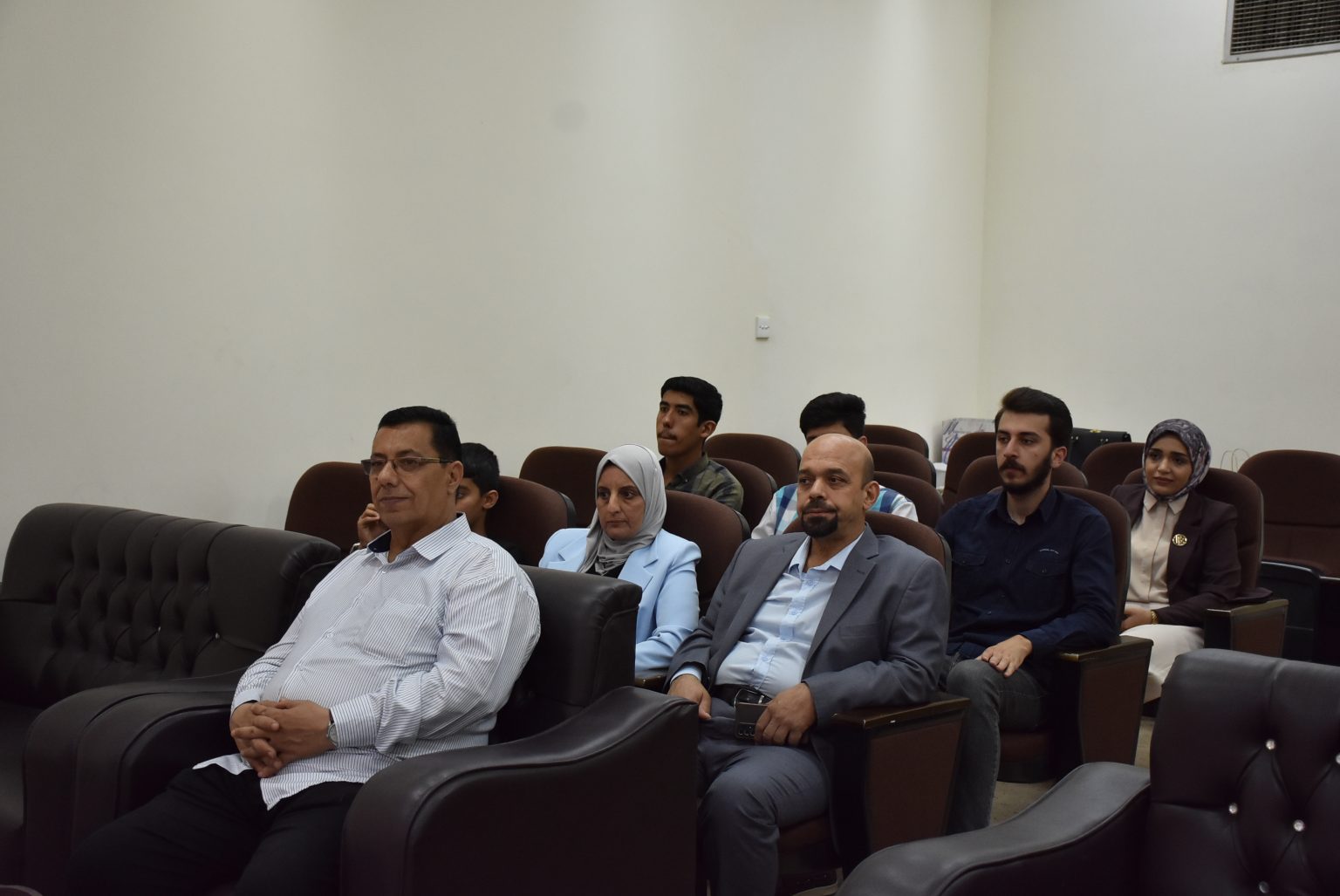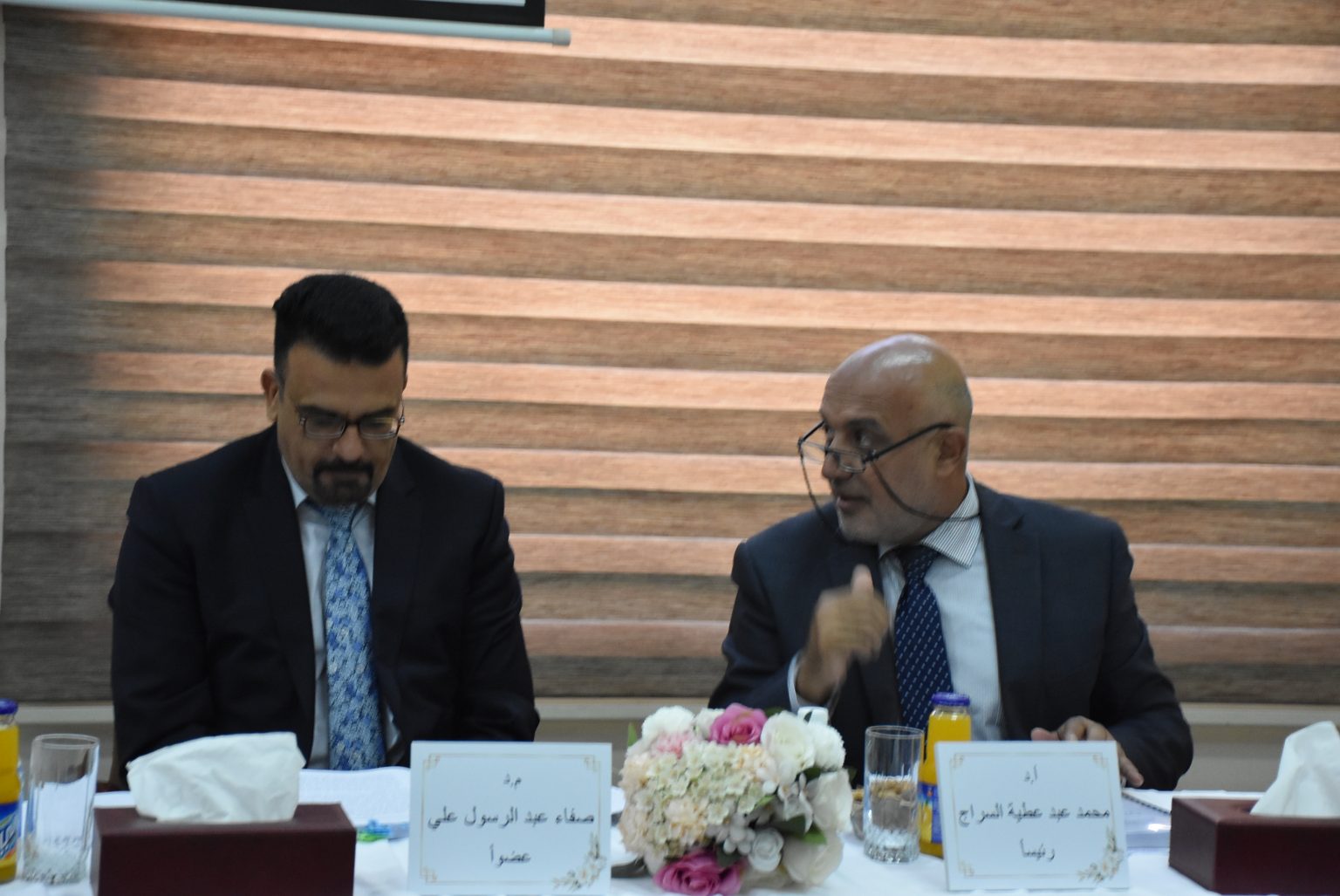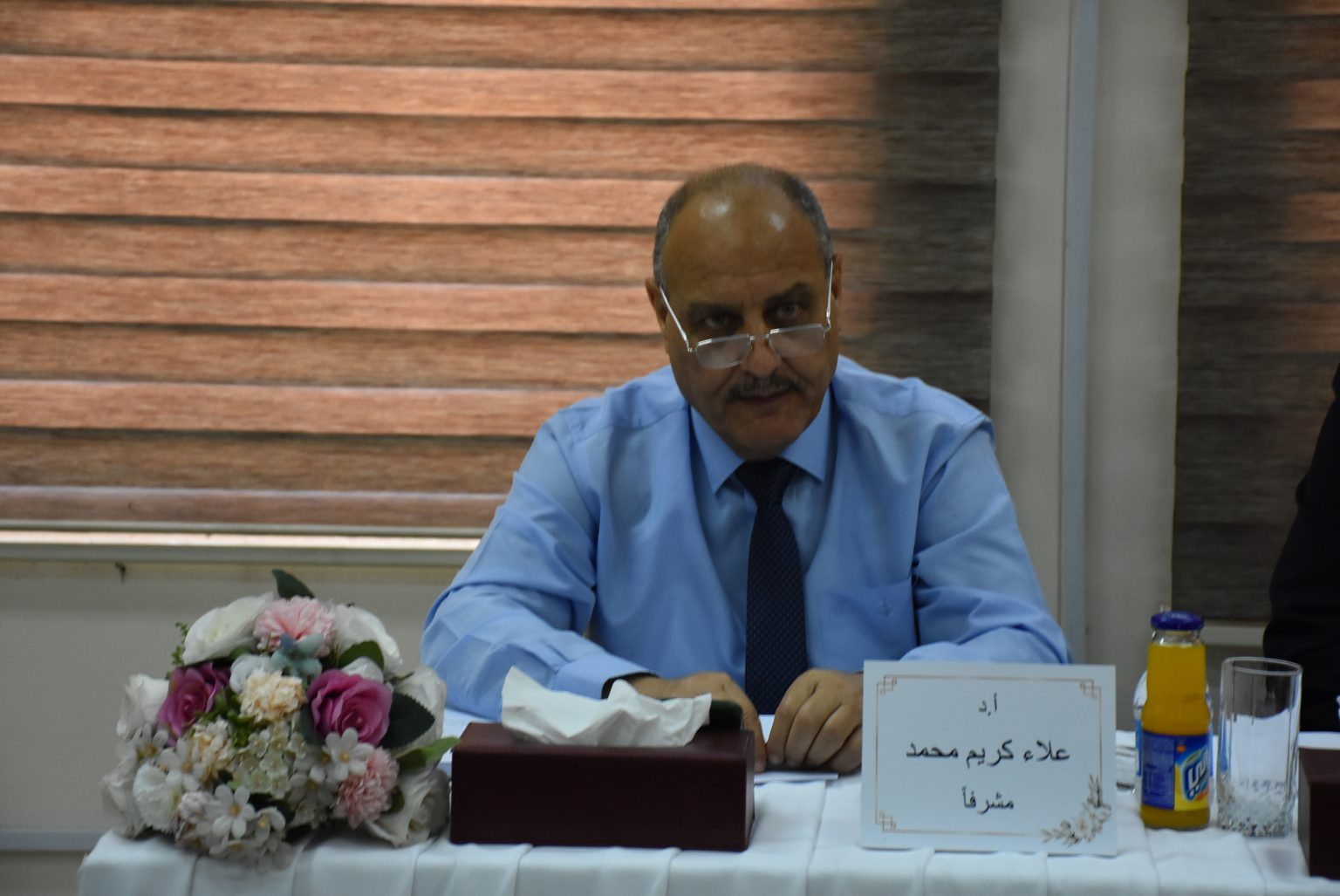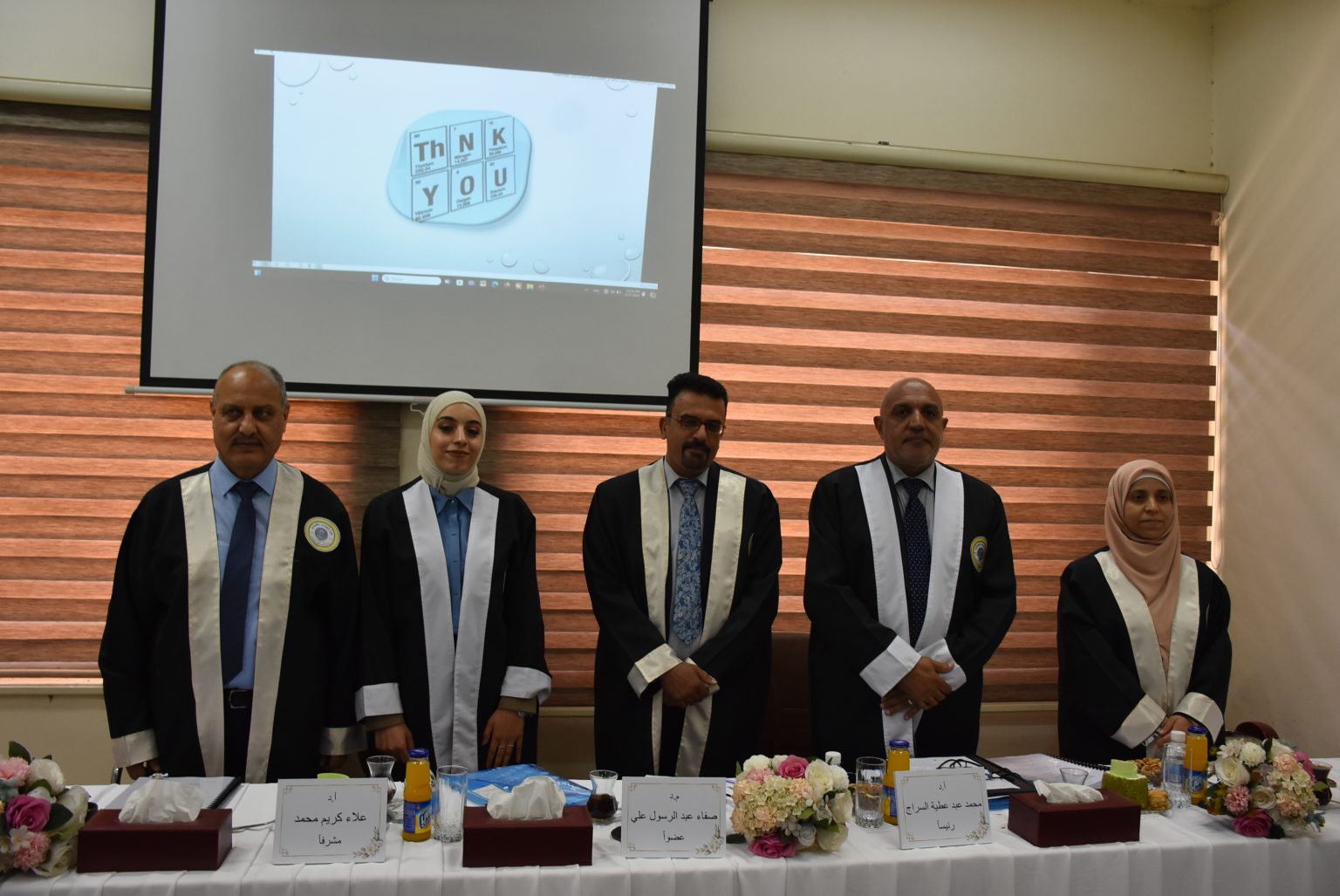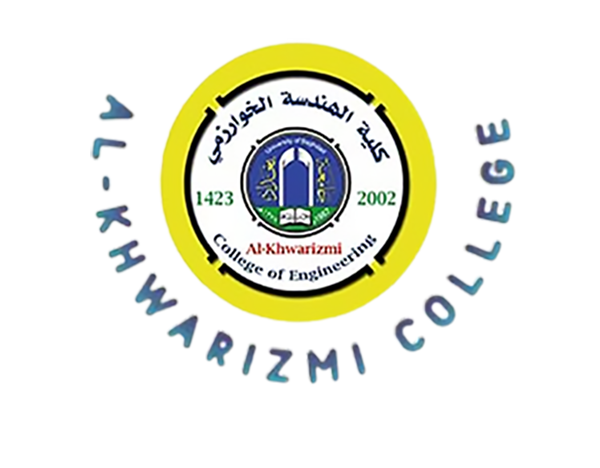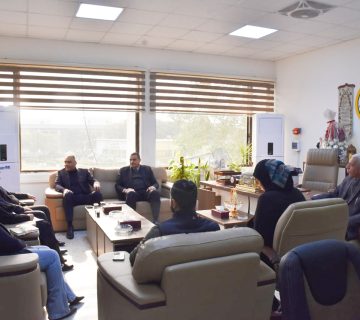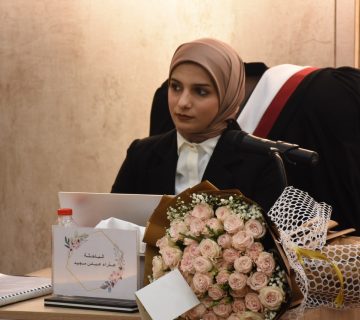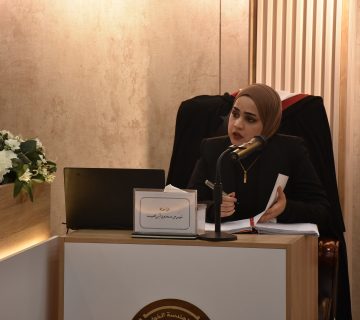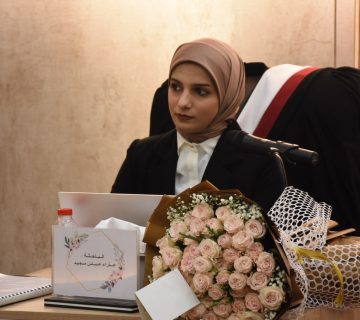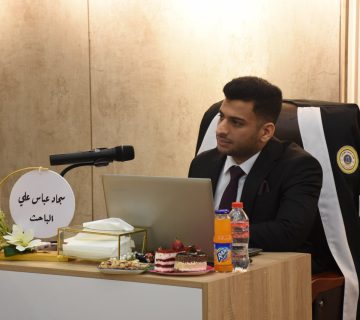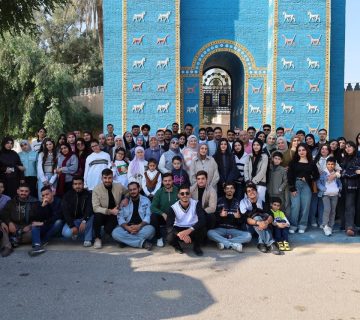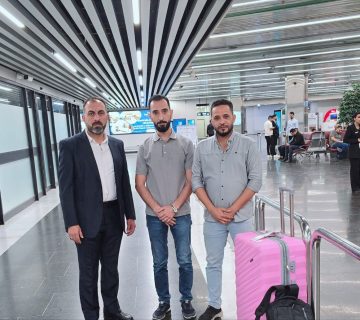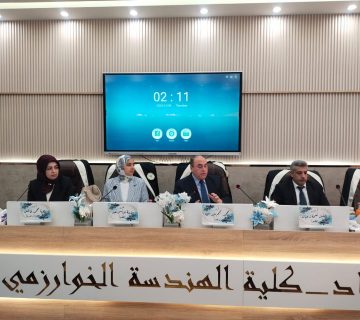On Monday morning, May 27, 2024, a master’s thesis authored by Hala Ali Faisal, a student from the Department of Biochemical Engineering, was deliberated upon in the postgraduate studies hall at the college. The committee, chaired by Professor Dr. Muhammad Abd Attia Al-Sarraj from the Al-Khwarizmi College of Engineering’s Department of Biochemical Engineering, included Dr. Yusr Riyad Abdel Majeed from the College of Engineering at Al-Nahrain University and Dr. Safaa Abdul Rasoul Ali from the Institute of Genetic Engineering and Biotechnology for Postgraduate Studies at the University of Baghdad. The thesis was conducted under the supervision of Professor Dr. Alaa Karim Muhammad from the Department of Biochemical Engineering at Al-Khwarizmi College of Engineering. Following the student’s presentation, the committee chair announced that the researcher had received a distinction for the work.
The research aimed to assess the viability of utilizing two adsorbents derived from tea waste: activated carbon (TAC) and activated carbon loaded with silver nanoparticles (AgNPs-AC), for the removal of tetracycline (TC) and chromium (VI) from industrially polluted water. Potassium hydroxide (KOH) was used to chemically activate the tea residue, while silver nanoparticles were produced through a hydrothermal technique. The adsorbents were characterized using various methods including FTIR, SEM-EDS, XRD, and BET. Experiments were designed using Design Expert software to study the impact of different factors on adsorption efficiency. The Langmuir model provided the best fit for the equilibrium data, and the adsorption kinetics were well described by the pseudo-second-order model. Thermodynamic analysis revealed that the adsorption processes were endothermic, more spontaneous at higher temperatures, and exhibited a positive entropy change.
